Japan has a reputation for being a sexist country, with gender inequality and some cultural factors that favor machismo. This generates many questions and doubts. Are there no feminists to fight for equality in Japan? In this article, we are going to talk about sexism and feminism in Japan.
Índice de Conteúdo
The history of sexist Japan
Japanese society was never meant to be built on the idea of Gender Equality, at least not in the Western sense, the Japanese Sociology class itself talks about this subject. Since the beginning of Japan, there was a hierarchy between the sexes.
During the Tokugawa period, women were subordinate to men and needed to be obedient to the men in the family, whether father-in-law, husband and brother. They were taught just to take care of the family and be a good mother.
Even with the fall of the Tokugawa regime and the Meiji Restoration, the status of women in Japanese society remained unchanged. To this day women still have a strong role as mothers, except that culturally women take care of the finances of the house.
The Meiji Constitution of 1889 did not grant any legal rights, keeping women as subordinates and under the legal responsibility of “fathers and heads of households”. With westernization Japanese women began their struggle for rights.
Despite the slowness in resolving some egalitarian situations, such reform prohibited trafficking in women, allowed women to be allowed to apply for divorce, and extended egalitarian primary education to both sexes as early as the 19th century.

The History of Feminism in Japan
The history of feminism in Japan is quite old, but the struggles started along with feminism in the West. Many historians argue that Japanese feminism has its origins in the Heian period, around 1000 years ago.
However, this idea can be disputed, as most Japanese during this period did not seem to have any awareness of gender equality and more as a consequence of cultural phenomena.
A more precise date would be during the early 20th century, when Western ideas began to flow into Japanese society. However, Japan has never had any large-scale feminist movement at any point in its history.
The only reason women are protected by the same laws as men is Beate Siota Gordon, a European-born American civilian who wrote the draft of Article 24 of the Japanese Constitution.
Many concrete changes were made as a result, including voting rights and reforms to marriage systems. In fact, Japan was quicker to allow women to vote than most other countries.
Japan's economic boom in the 1990s also pushed women into the workforce that can now be independent of men. Unfortunately, gender inequality can be seen in the salary differences between men and women.
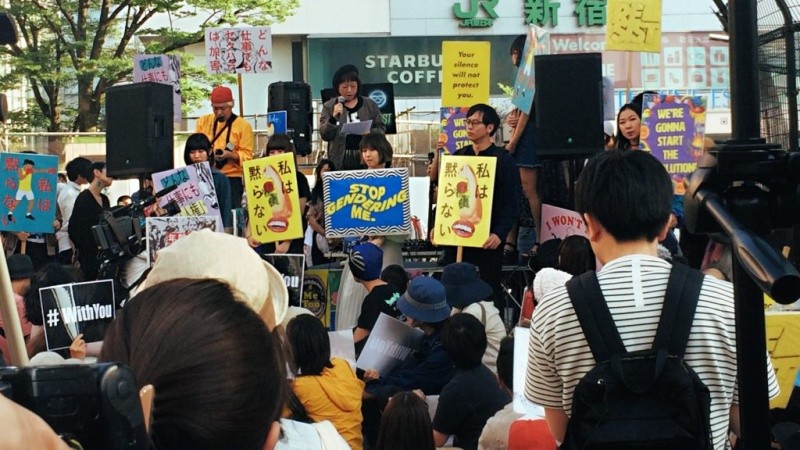
Absence of 2nd and 3rd Wave Feminism in Japan
Second Wave Feminism is often considered a popular movement during the mid-20th century that focuses on women's enlightenment, primarily employment and affordability.
Women demanded access rights to privileges that previously only men had, so it can be described as women pursuing masculinity, rather than gender equality.
Society has become tolerant of girls seeking masculinity, such as purifying the scientific academic career, wearing men's clothing (such as jackets and pants) and having hobbies like shooting and driving, which became a trend in the last century.
However, this movement never reached Japan, at least not on a large scale. It seems to be widely accepted that Japanese culture values a completely different concept regarding gender equality.
Japanese feminism differs from Western feminism in that less emphasis is placed on individual autonomy. That's because Japan is a team-based society, so things like individualism are not pervasive in Japanese culture.
The resistance of the Japanese people to the struggles of feminism is deeply intertwined in the culture of enduring the worst situations without complaining or making a scene. Even with the fights of Shizue Kato and Chizuko Ueno we didn't make much progress.
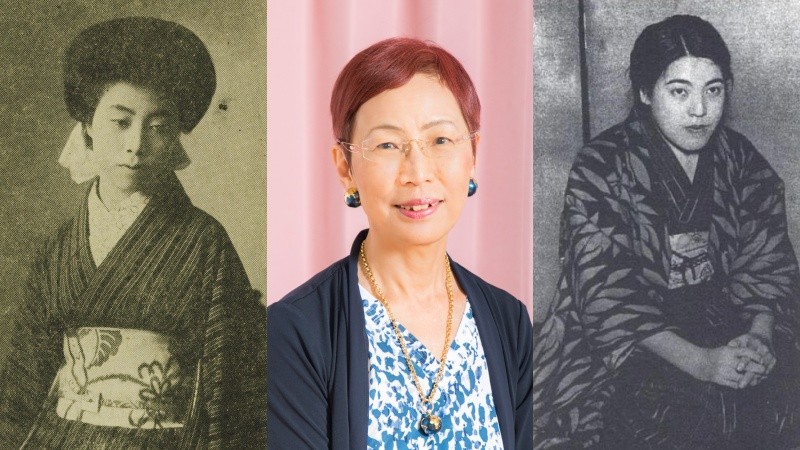
The article is still halfway through, but we recommend also reading:
Do Japanese women feel inferior?
According to a survey that asked people if they wanted to be reborn as a different sex, 46.7% of men and women responded that they would like to stay as they are. Women seem to benefit greatly from this gender gap.
This becomes apparent when you look at Japanese teenagers. When you go to Tokyo Disneyland or to music schools, art schools and language classes, most of the teenagers present are women.
Girls have far more opportunities to enrich their adolescent lives than boys, because girls are exempt from the social obligations imposed on boys, such as academic/professional success and family traditions.
While boys are stuck in cram schools and after-school curricula, often shot down by their instructors, girls can go out and follow their passions or hang out with friends. So kind of inequality in Japan is not 100% bad.
Japanese teenagers also have a great influence on our culture, which can be felt not only in Japan but all over the world. They are often the protagonists of many novels and manga that even define youth fashion and vocabulary.
Furthermore, gender inequality in Japan is often reinforced by women themselves. Many older Japanese women tend to vote for conservative politicians. Shintaro Ishihara, a former Tokyo governor widely considered to be ultra-conservative, was elected with the support of older women.
There's also this arms race among women, especially housewives, about how to be a perfect woman. Obento is a clear example of this. That is, women are not trying to be men, because they like being women.
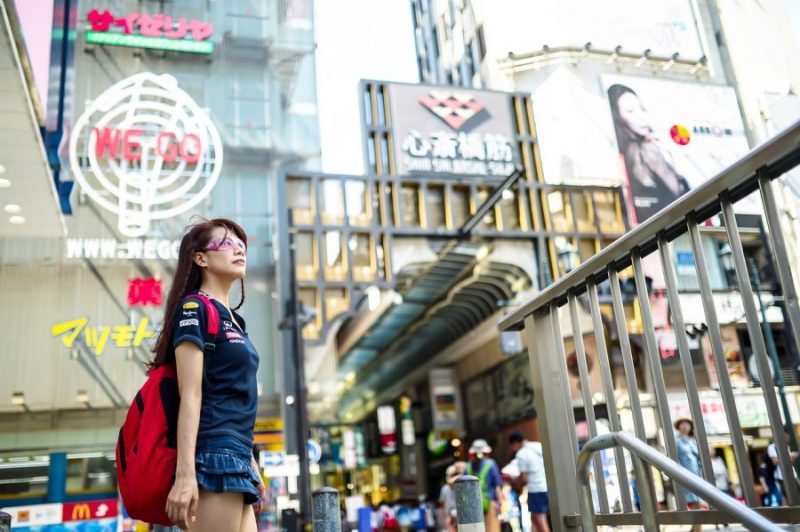
Kikokushijo - Children Repatriated
Kikokushijo [帰国子女] refers to children of Japanese expatriates who participate in their education outside of Japan. It is often used to refer to immigrant children who returned to Japan, or simply Japanese who had a western life before Japan.
Feminism gains traction in Japan because of the Kikokushijo who have experienced feminism and freedom in foreign lands and are particularly passionate about changing the system. Similar to Brazilians who live complaining about Japan and its culture.
There are many feminists in Japan, but the vast majority of them are returnees, immigrants or people with some experience abroad. Rarely have you heard of a purely Japanese activist. As a minority, their influence is limited.

The Japanese Feminists
Strong-willed women refused to accept the role of “good women” and ended up paying with their lives for their radical activism. Among them, Kanno Suga (1881-1911), Kaneko Fumiko (1906-1926) and Itô Noe (1895-1923) stand out.
Some other women have tried to fight fair by seeking support from liberal men, but have had no good results trying to change policy. Of course, there are some moves that deserve to be highlighted in this article.
Prominent feminist scholars in Japan in recent decades include sociologist Ueno Chizuko and feminist theorist Ehara Yumiko. Nowadays we have many women who pursue an independent career, called Kyariaūman.
Mitsu Tanaka was the most visible individual figure in Japan's radical feminist movement during the late 1960s and early 1970s. She wrote a series of pamphlets on feminist topics, the best known being Liberation from Toilets.
Misako Enoki was a pharmacist who organized activists to push for the legalization of the birth control pill. His approach was to attract media attention by forming a protest group called Chupiren, who wore pink helmets.
We also recommend researching:
- Chizuko Ueno, academic in women's studies and activist;
- Sayaka Osakabe - founder of Matahara Net;
- Minori Kitahara, owner of a sex toy shop for women;
- Mitsu Tanaka, feminist, acupuncturist, and writer;
- Hisako Matsui, film director;
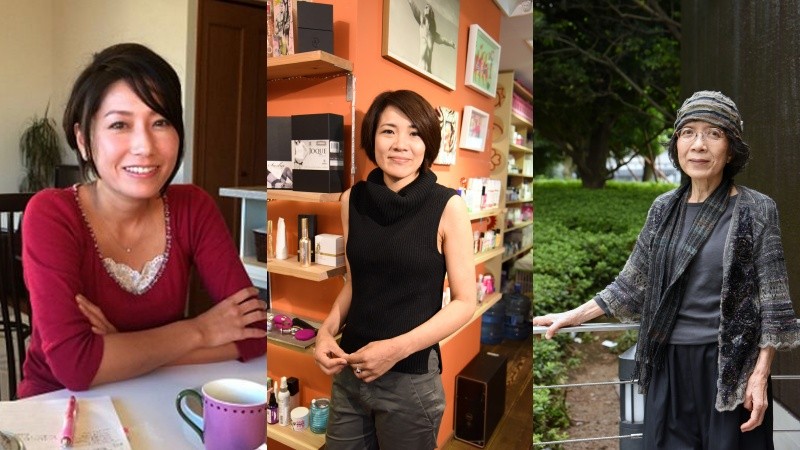
Feminist Movements in Japan
In 1970, in the wake of the anti-Vietnam War movements, a new women's liberation movement called ūman ribu emerged in New Left Japan along with radical student movements.
This movement was in sync with radical feminist movements in the United States and elsewhere, catalyzing a resurgence of feminist activism in the 1970s and beyond.
The Japanese feminists are so cool that in the midst of the freedom movement, they not only wanted equality with men, but also highlighted that men should be freed from the oppressive patriarchal and capitalist system.
In 1979, the Convention on the Elimination of All Forms of Discrimination against Women was adopted by the United Nations General Assembly. The convention was ratified by the Japanese government in 1985. Of course, that wasn't enough.
Sekirankai - Red Wave Society
Sekirankai, was the first socialist women's association. Yamakawa Kikue and others organized the association in April 1921. The Red Wave manifesto condemned capitalism, arguing that it turned women into slaves and prostitutes.
Rural families were forced to hire their daughters into factories due to financial difficulties. These girls were forced to live in dormitories, unable to leave except for work. They worked 12-hour shifts in poor conditions.
Sexism in Language
Women in Japan are often expected to speak according to traditional standards of speech. onnarashii (女らしい). In speech, onnarashii employs an artificially high tone of voice, polite forms of speech, and frequency of words considered feminine.
Feminists differ in their answers, some believe that such language is based on gender and finds it "unacceptable". Other feminists argue that history and gender differences in vocabulary are not linked with equal oppression in the West.

The Results of Feminism in Japan
Throughout history the influence of Japanese and Western feminists has managed to make major changes in Japanese society. Below we list a quick little history of these changes:
- 1986 – Implementation of the Equal Employment Opportunity Law;
- 1919 - Creation of the Association of New Women;
- 1921 – Law allows women to participate in political meetings;
- 1923 – Formation of the Tokyo Federation of Women's Organizations;
- 1946 - Women were able to vote for the first time;
- 1948 - Allowed abortion in Japan;
- 1976 - Allowed men to use the woman's last name;
- 1985 – Approved Bill on Equal Employment Opportunities;
- 1999 – The birth control pill was legalized in Japan;
- 2016 – Yuriko Koike became the 1st governor of Tokyo and was re-elected in 2020;
I plan to update this record of achievements, if you remember any important date, just comment...
Other achievements for the benefit of women were the implementation of exclusive wagons and other establishments, thus allowing security. Another widely discussed topic is the women's safety in japan against perverted men.
Article 14 says: “All persons are equal before the law and there will be no discrimination in political, economic or social relations because of creed, sex, social status or family origin”.
Article 14 of the Japanese Constitution
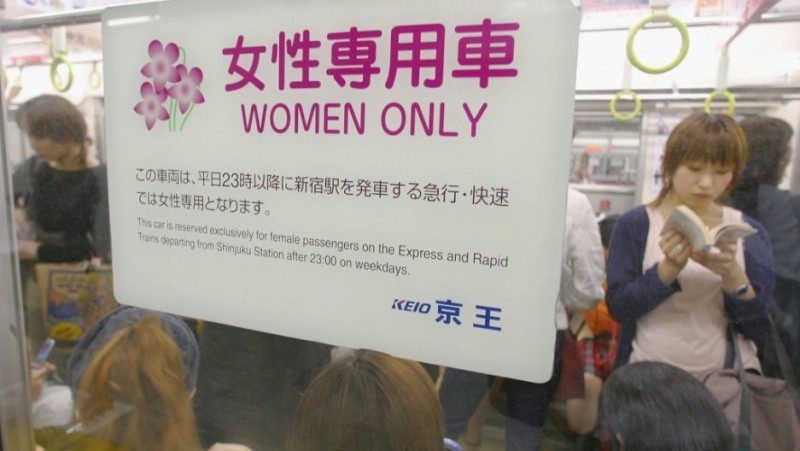
The influence of women in Japan
Women in Japan are superior in many ways, I don't understand the idea of some extremist feminists wanting to be equal to men in some ways, I don't see any men wanting to wear a skirt or walk around naked (without generalizing, I'm talking about extremists).
Women have been voting in Japan for over 70 years, in fact more women have voted than men in the national elections. If Japanese women were seriously unhappy with their situation, they might support candidates who put “sexism” first.
Sexism and feminism is not a hot topic in Japan, even though the media often addresses such issues. We can culturally see the presence of women in Japanese media, they are protagonists of games and are seen as leaders.
Take any American game, cartoon, movie and TV show. Most of us have male protagonists or male-centric stories. In Japan most stories have female leadership and orientation.
Speaking of culture, the world's first novelist is Murasaki Shikibu who wrote the “Tale of Genji” in the early 11th century. Literature in the Heian Era (794-1085) was more or less predominantly female.
Japanese education was free for the upper class at such an early and troubled period in history. This was all thanks to low barriers and equal opportunities for education, unlike many developed western countries.
The richest and most influential celebrities in Japan are women. Women have more social freedom and less pressure than men. Perhaps the fact that it's easier to be a woman than a man in Japan contributes to feminism's lack of power.
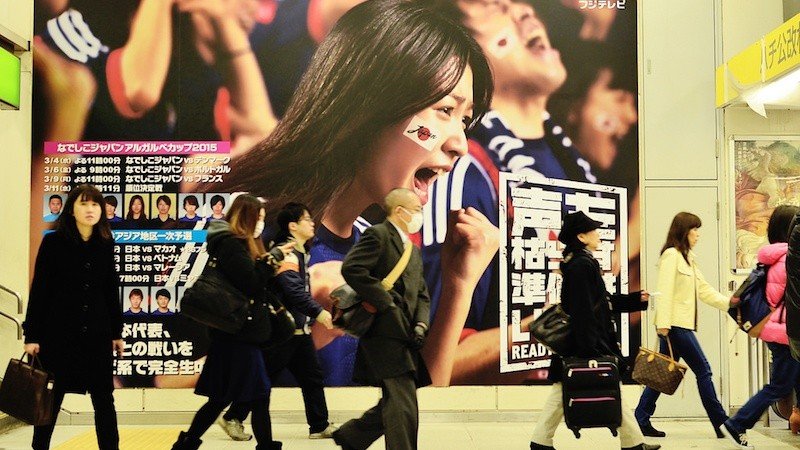
Is Japan Really Sexist? Is There Gender Inequality?
In conclusion, there is a social structure within the country that prevents feminism from taking place and the reinforcement of gender prejudice comes not only from established men, but also from women themselves. The system works like that, like it or not.
There are movements to change the system, but most of them are foreign-influenced or led by foreigners and have limited influence in Japan. Those who proclaim Japan “sexist” are predominantly foreign men and women.
When they are not foreigners, they are usually high-profile career women. You won't see any interviews with ordinary Japanese women. You won't see quotes from ordinary Japanese women talking about sexism or feminism.
If you are a Brazilian who is complaining about gender inequality or sexism in Japan, know that Brazil is 94th in the GII Ranking and 79th in the HDI, while Japan is 22nd in the GII and 19th in the HDI. In other words, Brazil is more sexist than Japan.
These calculated values show that Japan loses 0.103 in development because of gender inequality, while Brazil loses 0.407. So before questioning cultural values, you might want to change your way of thinking a little bit.
It is undeniable that there are gender inequality or sexism in Japan, Brazil or any country in the world, and cultural factors denote this. Even so, before criticizing the culture of the countries, it is better to try to look at your own belly button.
In fact, I've seen several Japanese people ask the same question about Americans and Brazilians. You must ask why humans are sexist and label the Japanese or Japan as sexist. Every culture and society has its way of solving things.
A Japanese woman told me that the reason people find Japan uniquely sexist is because they don't have enough knowledge about the history of "sexism", "the women's liberalization movement", "machismo", "chivalry" and others.
Sorry, I didn't mean to be rude, but I'm honestly tired of so many generalizations that people make over a certain subject. It seems to be Brazilian culture to complain about things, so such phrases are only for those who question Japan in a rude and unfair way.
This text was written based on the responses of several women on sites like Quora, as well as a thorough research in articles, books and academic research on feminism in Japan. These are not my words, but the words of the people!
In order to complement this article, we recommend reading our article with the theme: “Japanese women, respected or belittled?". I hope you enjoyed this reading! If you liked it, share it and leave your comments.







